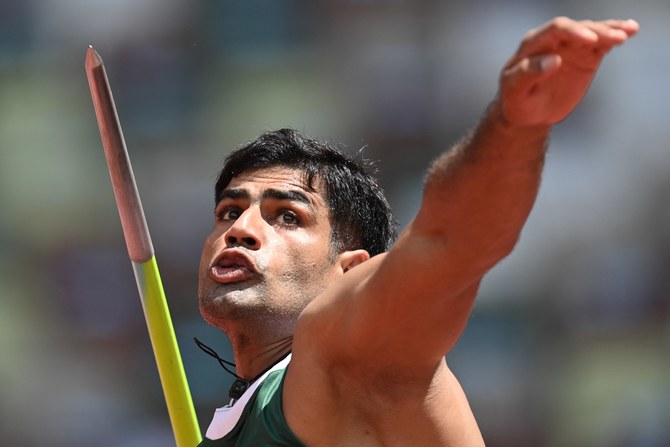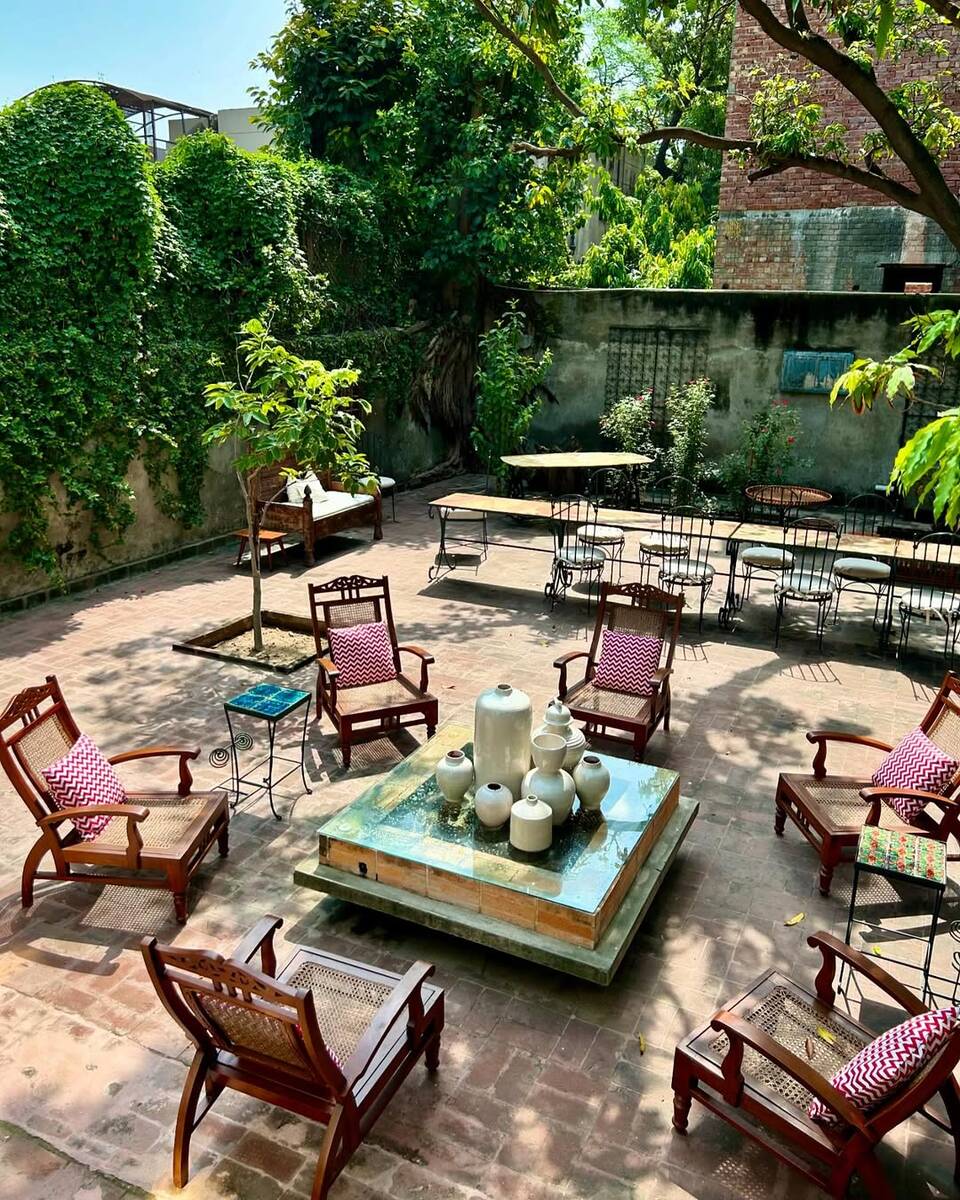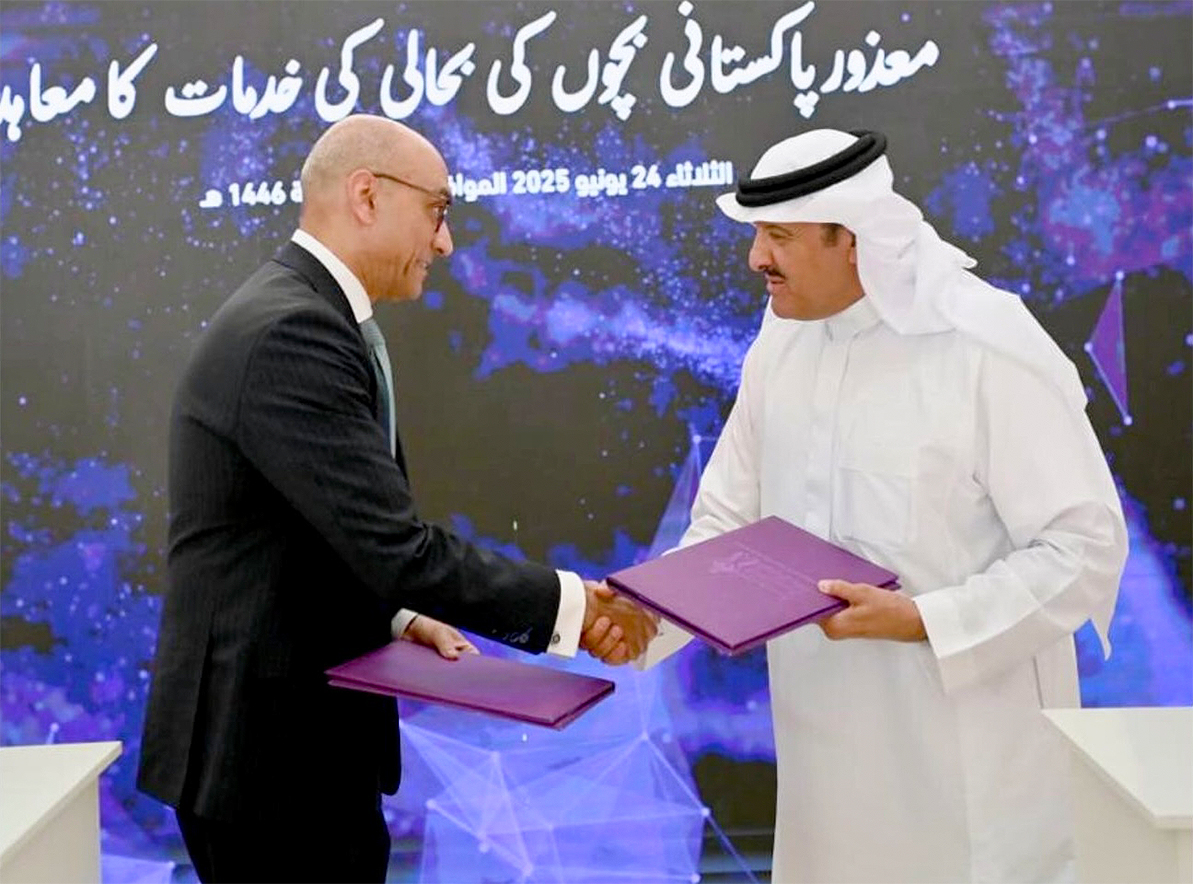Rawalpindi/Lahore: Pakistan’s Arshad Nadeem finished fifth in men's javelin in Tokyo on Saturday, while all eyes were on the athlete who is the first Pakistani in history to qualify for the final of any track and field event at the Olympics.
Neeraj Chopra won Saturday's event with 87.58 meters. The Czech Republic filled out the podium at Tokyo's Olympic Stadium, Jakub Vadlejch taking silver with 86.67m and Vitezslav Vesely claiming bronze with 85.44m.
Nadeem was fifth with 84.62m, after Germany's Julian Weber with 85.30m.
On Wednesday, Nadeem made it through to the final with the third best throw of the day at 85.16m, behind Chopra (86.65m) and Weber (85.64m). Ahead of the final on Saturday afternoon, he asked the nation for prayers.
“Pray for me,” he said in a video uploaded to Twitter. “Inshallah I will not let down the nation. Destines are changed with prayers.”
On Friday, a day before the final, Nadeem shared a video of his coach also appealing for prayers.
“Pray for us, he [Nadeem] has qualified with your prayers,” Fayyaz Bukhari, who is accompanying the sportsman. in Tokyo, said.
Nadeem added in the same video: “I am thankful to the Pakistani public whose prayers were with me.”
On Wednesday, when Nadeem qualified for the javelin final, the government of Pakistan’s official Twitter account cheered for him with the words: “Arshad Nadeem you have made us all proud!”
“Prayers and best wishes for #ArshadNadeem,” information minister Chaudhry Fawad Husain
wrote on Twitter on Saturday morning.
Indeed, when Nadeem went through to the final of the men’s javelin this week, his family, coaches and the public couldn’t help but marvel at how far the boy from a poor family and a small town he had come.
Nadeem was born in Mian Channu, a small city in Khanewal District, one of nine children of daily wage laborer Liaqat Ali. From a young age, he showed great versatility as an athlete, dabbling in whatever sports were on offer at school, from cricket to football to badminton.
By the time he was in the seventh grade, Nadeem had his heart set on being a cricketer. But his father told Arab News in an interview that he realized that he neither had the financial resources nor the connections to support his son in achieving a successful career in cricket. Already, upon the insistence of his elder sons, Ali had been convinced not to send Nadeem to work like his other male children but to help him instead pursue his passion for athletics.
“We are very poor people, I could not afford to send my children to high schools,” Ali said. “After a few classes, I told them to find themselves some work so they could contribute to the family income.”
One of his sons became a driver, another a police constable and one a clerk. But Nadeem was given a chance to pursue his dreams: “On seeing Arshad’s enthusiasm for sports and pressure from his elder brothers to let him make his career in sports, I took him to Khanewal Athletic Federation where, after some basic trials, he was admitted,” his father said.
Soon after, the boy caught the eye of Rasheed Ahmad Saqi during an athletics competition when he was just 12 years old. Saqi had a history of developing sportspeople in the division and became Nadeem’s first coach and mentor.
Saqi told Arab News he could not be prouder of Nadeem’s throw at the Olympics this Wednesday.
“God willing, he can throw up to 90 meters and bring glory for Pakistan,” Saqi said as he prayed for Nadeem to win at the javelin final today, Saturday.
He recalled how he saw a “spark” in 12-year-old Nadeem when he first arrived at the Federation, and “a restlessness to be the best.”
“Therefore, I took him under my supervision as a trainer,” the coach said. “I started taking him to inter-cities athletic competitions where he would leave the stamp of a true sportsman.”
“I decided to train him for javelin throw,” he added, saying Nadeem, at 6 feet 3 inches tall, had the right height and physique for the javelin throw.
“Arshad’s family was so poor they could not even arrange shoes and sports kits for him, and the Federation had to arrange everything for him,” Saqi said.
The training and support paid off.
In 2014, after Nadeem secured first place in a Punjab youth festival, Saqi decided “it was high time to induct him in any government department to raise and polish his talent more.”
“My job is to hunt talent, train athletes and introduce them to government sports departments to further their careers as athletes,” he added. “Therefore, I took him to WAPDA, Lahore, where another senior coach, Fayyaz Bukhari, took him under his supervision and trained him to reach the Tokyo Olympics.”
Before Tokyo, in May 2017, Nadeem won a bronze medal with a best throw of 76.33 meters at the Islamic Solidarity Games in Baku. In April 2018, he set a new personal best of 80.45 meters in the qualification round of the javelin throw event at the Commonwealth Games held on the Gold Coast, Australia. In August 2018, he won a bronze medal at the Asian Games in Jakarta, Indonesia, where he set a new personal best and national record of 80.75 meters.
As the only Pakistani athlete at the 2019 World Athletics Championships in Doha, Nadeem achieved a new personal best and national record of 81.52 meters. In November 2019, Nadeem set a national record when he recorded 83.65 meters throw to win gold for WAPDA at the 33rd National Games in Peshawar. In December 2019, he won a gold medal with an 86.29 meters games record throw at the 13th South Asian Games in Nepal.
Now, all eyes are on the athlete’s performance at the javelin throw final.
On Friday, at Nadeem’s modest family home in Khanewal, his family and neighbors arranged a Qur’an recitation to pray for his success.
“We request the nation to pray for Arshad so that he may win the gold medal and make us all proud,” Nadeem’s elder brother Shahid Azeem said.
Nadeem’s mother burst into tears while talking to Arab News.
“I always wanted to see my son on TV,” she said. “I always wondered how other people’s kids come on TV. ‘When will my son come on TV and we will see him hoisting Pakistan’s flag,’ I always used to think this.”
“There has never been, nor will there ever be, anything quite so special as the love between a mother and a son,” she added, “and my son has made me so proud.”


















